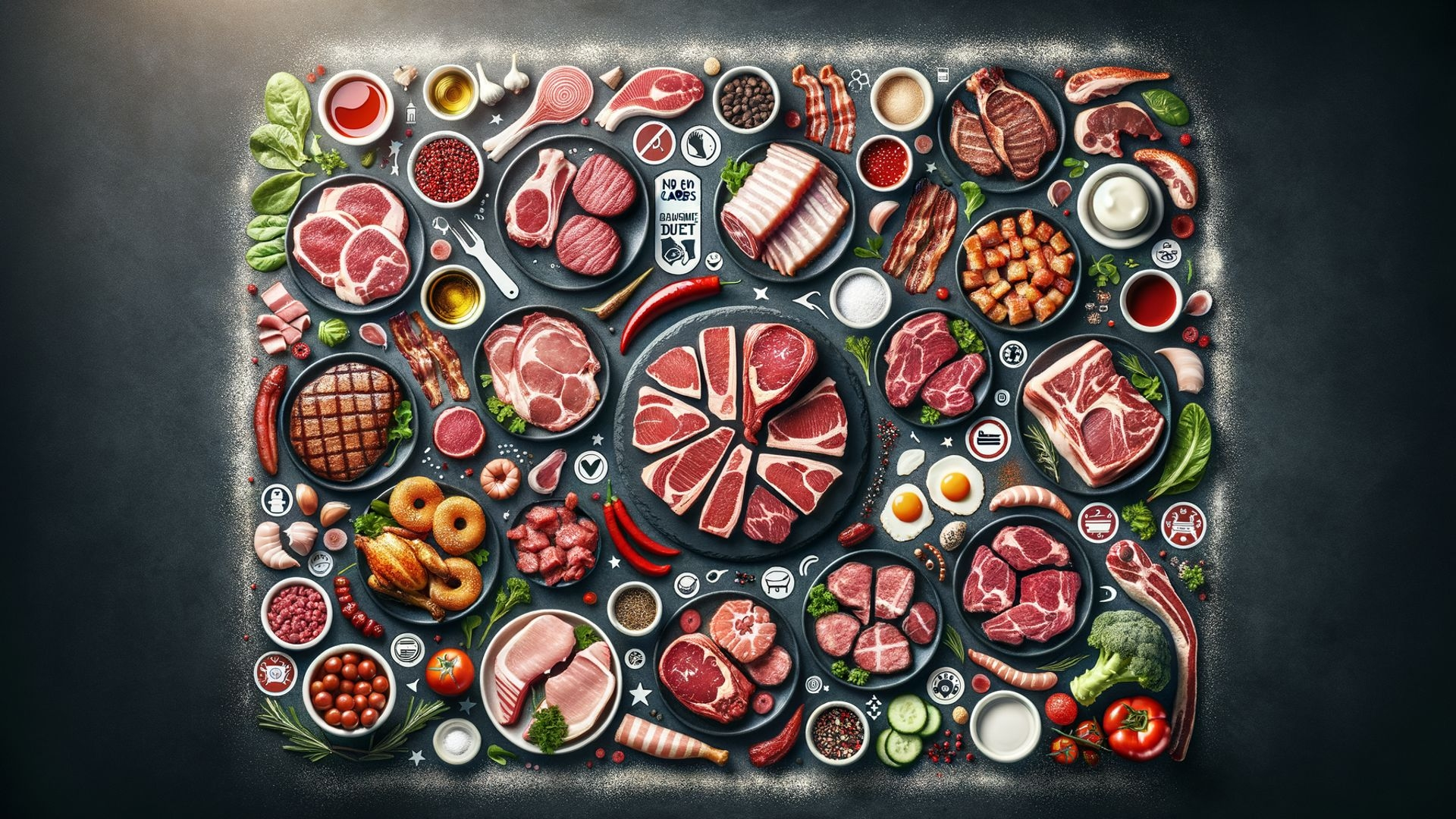Carnivore Diet and Ulcerative Colitis: Exploring IBD Development in a Large Prospective
The relationship between diet and health has long been a subject of interest in the medical community. In recent years, the impact of dietary patterns, particularly the carnivore diet, on the development of certain conditions like ulcerative colitis (UC) has gained attention. Ulcerative colitis is a type of inflammatory bowel disease (IBD) that affects the intestinal tract, leading to discomfort and potential complications.
The Link Between Carnivore Diet and Ulcerative Colitis
Understanding the Impact of Dietary Patterns on UC Development is essential in unraveling the complexities of this condition. Studies have suggested a Possible Association Between Red Meat Consumption and UC, highlighting the need for further investigation. Examining the Likelihood of Developing UC on a Carnivore Diet can provide insights into preventive measures and treatment strategies.

IBD Development in a Large Prospective Population-Based Cohort
Exploring the Relationship Between IBD and Large Prospective Studies is crucial for understanding the epidemiology of these conditions. The Impact of Dietary Patterns on IBD Development in Large Cohorts can reveal trends and risk factors that may influence disease progression. Chronic Inflammatory Bowel Disease Patterns in Population-Based Studies offer valuable data for clinicians and researchers.

Influence of Diet and Gut Health on Ulcerative Colitis
The Role of Intestinal Health in UC Development cannot be underestimated, as gut health plays a pivotal role in overall well-being. Fatty Acids and Their Impact on IBD Progression shed light on the effects of specific nutrients on disease activity. Microbiota and Gut Microbiome Diversity in UC Patients are areas of active research, exploring the relationship between gut flora and disease pathogenesis.
As researchers delve deeper into the interplay between diet, gut health, and ulcerative colitis, it becomes apparent that dietary patterns can significantly influence the course of the disease. For example, diets rich in red meat and processed meat may exacerbate symptoms, while those high in dietary fiber and essential nutrients from sources like poultry and fish could support remission.
The Mediterranean diet, known for its emphasis on fruits, vegetables, whole grains, and healthy fats, has shown promise in managing inflammatory conditions like UC. In contrast, a carnivore diet, characterized by a high intake of meat and animal products, may increase the risk of developing or exacerbating UC symptoms. Red and processed meat, common staples of the carnivore diet, have been linked to gut microbiota alterations that could contribute to disease progression.
Studies exploring the influence of the gut microbiome on UC reveal intricate connections between dietary habits, gut microbiota composition, and disease outcomes. The Ketogenic diet, another low-carb, high-fat dietary approach, has also sparked interest in its potential impact on inflammatory conditions. Understanding how these different diets interact with the gut microbiota and immune system is essential for developing personalized treatment strategies for patients with ulcerative colitis.
In conclusion, the development of ulcerative colitis in the context of dietary patterns and gut health is a multifaceted issue that requires comprehensive investigation. By examining large prospective population-based cohorts, researchers can gain valuable insights into the factors influencing IBD development and progression. Implementing dietary modifications based on these findings may help manage symptoms, reduce inflammation, and improve the overall quality of life for patients with ulcerative colitis.

Carnivore Diet and Ulcerative Colitis Frequently Asked Questions:
What is the relationship between the carnivore diet and Ulcerative Colitis (UC)?
The study aims to explore the potential link between the carnivore diet and the development of UC, a form of chronic inflammatory bowel disease.
How does the carnivorous diet impact patients diagnosed with Ulcerative Colitis?
The research investigates whether the consumption of red meat and adherence to a carnivorous pattern may increase the risk of UC development in individuals.
What is the role of diet in the development of chronic inflammatory bowel diseases like UC?
The study assesses the role of diet, particularly a protein-rich carnivore diet, in triggering inflammation and affecting patients with UC.
Are there specific risk factors associated with UC in relation to diet?
The research examines the increased likelihood of developing UC in individuals following a carnivore diet, addressing potential risk factors for the disease.
How does the Lifelines Diet Score correlate with the development of UC?
The study investigates how the quality of diet, as measured by the Lifelines Diet Score, influences the incidence and progression of UC among participants.
What are the anti-inflammatory properties of the carnivore diet?
The research delves into the potential anti-inflammatory properties of specific diets, like the carnivore diet, concerning their impact on chronic inflammatory bowel diseases such as UC.
How are Crohn’s disease and Ulcerative Colitis distinguished in the context of dietary influences?
The study differentiates between Crohn’s disease and UC regarding their unique responses to dietary patterns, including the potential effects of a carnivore diet on each condition.
What is the carnivore diet and how might it affect ulcerative colitis symptoms?
The carnivore diet consists exclusively of animal products and eliminates all plant-based foods. It could potentially impact ulcerative colitis symptoms by reducing dietary fiber, which may decrease bowel movements and give the gut a chance to heal. However, evidence regarding its efficacy for ulcerative colitis is anecdotal, and long-term impacts are not well studied.
Can self-experimentation with a carnivore diet be safe for someone with ulcerative colitis?
Self-experimentation should be approached cautiously as ulcerative colitis can have serious complications. Consulting with a healthcare provider before making drastic dietary changes is essential to ensure safety and monitor health effects.
How might the carnivore diet influence energy levels in individuals with ulcerative colitis?
Individuals on the carnivore diet may experience changes in energy levels due to shifts in macronutrient intake—consuming more protein and fat but fewer carbohydrates. These changes can affect each person differently; some may report increased energy, while others might experience fatigue or other issues.
Is there scientific research supporting the use of a carnivore diet for managing ulcerative colitis?
As of my knowledge cutoff date in 2023, theres limited peer-reviewed scientific research specifically addressing the efficacy of a carnivore diet for managing ulcerative colitis. Most available information comes from personal testimonials and anecdotal reports rather than controlled studies.
What potential risks should be considered before starting a carnivore diet for ulcerative colitis?
Potential risks include nutrient deficiencies (such as lack of fiber, vitamins, and minerals that are typically found in plant foods), increased risk of heart disease from high saturated fat intake, alterations to gut microbiota, and possible exacerbation of inflammation or flare-ups if the body reacts negatively to such a restrictive regimen. Always consult healthcare professionals before initiating such diets.






